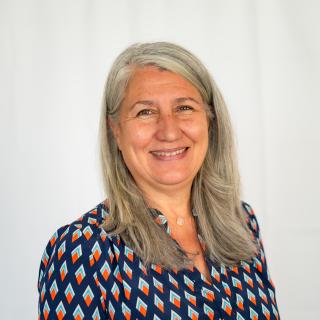Talking the Talk on High-Quality Pre-K
November 15, 2017
More than 50 years of research shows investing in the early years of a child’s life often produces a high rate of return by positively impacting a child’s readiness at kindergarten entry and future achievement in elementary school, high school, college, and adulthood.
Indeed, high-quality early education is one of the best investments we can make with public dollars. It’s better to pay now, rather than pay more later. High-quality early learning is an effective weapon against academic failure, high school dropout, crime and poverty. As NIEER Founder Steven Barnett, Ph.D. notes, “Pre-K pays off so well because we pay a high price for failure.”
But that doesn’t make it easy to obtain the public investment required to provide the high-quality learning experiences children need to thrive and succeed.
This week, the Center on Enhancing Early Learning Outcomes (CEELO) launched a CPQ Communications Toolkit providing materials and strategies to help explain why high-quality early education is a worthwhile investment.
State-funded preschool programs now serve almost 1.5 million children nationwide, yet access to high quality remains highly uneven from state to state, according to The State of Preschool 2016. State spending per child varied dramatically across the states from $16,812 in the District of Columbia to less than $2,000 in Mississippi—meaning the District of Columbia spends almost nine times as much per child as Mississippi.
To help determine the investment needed to provide high-quality early education, CEELO developed a Cost of Preschool Quality Tool estimator (CPQ) providing reliable cost calculations and funding estimates to help answer questions about expenses associated with implementing high-quality preschool. This free, Excel-based tool includes settings for “best practice” based on the 10 NIEER quality standards benchmarks.
The new CPQ Communications Toolkit complements the CPQ estimator data and helps administrators and advocates explain the value of high-quality early education and effectively respond to common questions from legislators, parents, policymakers and others, such as:
- What difference does pre-K quality make?
- What do we get for our money?
- What outcomes can we expect?
- Why are teachers important?
- Why does class size matter?
- Why do we need standards?
- How do we measure improvement?
- How can administrators help?
The free, online toolkit includes Helpful Resources providing information on key elements of preschool quality, along with talking points, quotes from experts, CPQ data and relevant research. Additional outreach materials include sample social media posts, a press release template, printable handouts, quotes and graphics for presentations.
As we talked to state leaders and advocates about questions they face explaining the costs of high-quality early education, some wanted basic information to share about why quality matters and what expenses are associated with providing high quality. So we created a series of one-pagers that can be printed and distributed.
Others were more interested in using graphics or quotes from national experts for presentations, along with strategies for How to Talk about Costs and sample social media posts. The toolkit provides those, too.
Preschool quality is important primarily because children deserve a great experience. In addition, only high-quality programs have been shown to provide long-term benefits to children, families and communities. For children to benefit, investments must be adequate to create and maintain high-quality pre-K classroom experiences.
Early education will not receive the resources needed to improve outcomes for children without support from policymakers and the public. The CPQ Communications Toolkit can help create effective messages about the value of high-quality early learning.
GG Weisenfeld is an Assistant Research Professor at NIEER. Dr. Weisenfeld works on the State of Preschool Yearbook and provides technical assistance on designing and implementing early childhood policies and programs through CEELO.
Michelle Ruess is NIEER’s Assistant Director for Marketing and Communication. She is a former newspaper reporter and editor.
The Authors
GG Weisenfeld is a Senior ECE Policy Specialist at the National Institute for Early Education Research (NIEER) at Rutgers University, Graduate School of Education.
About NIEER
The National Institute for Early Education Research (NIEER) at the Graduate School of Education, Rutgers University, New Brunswick, NJ, conducts and disseminates independent research and analysis to inform early childhood education policy.

